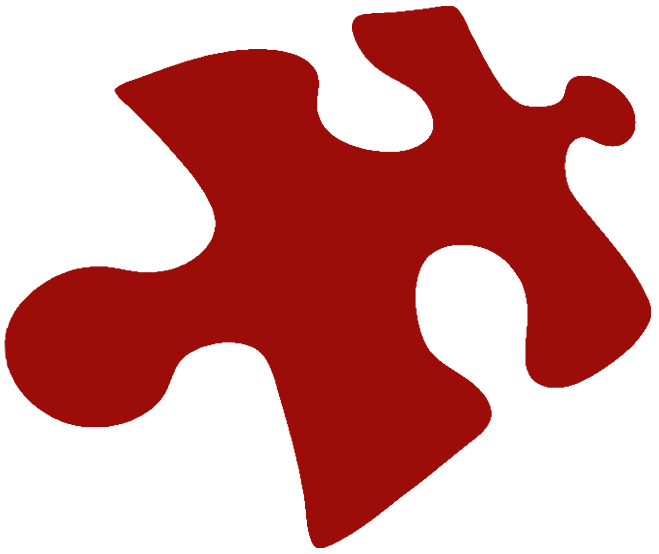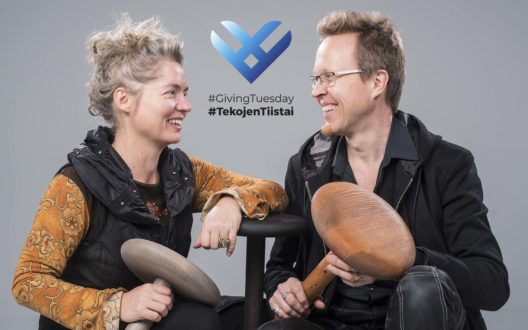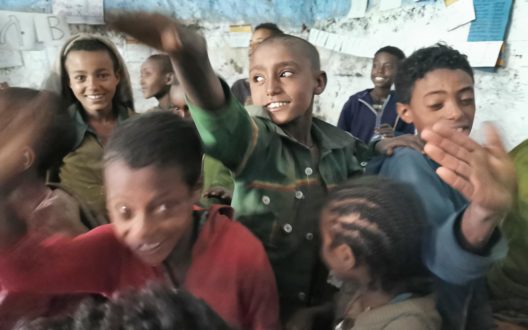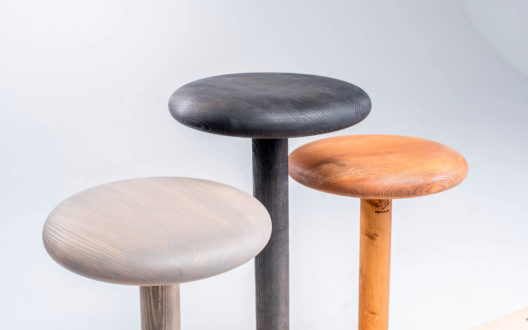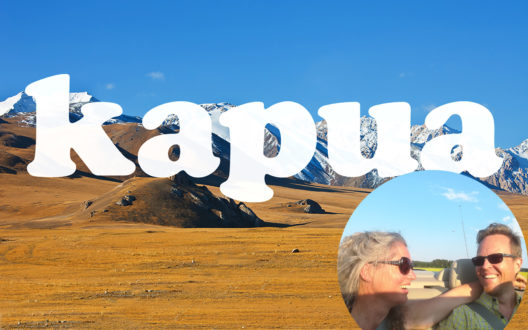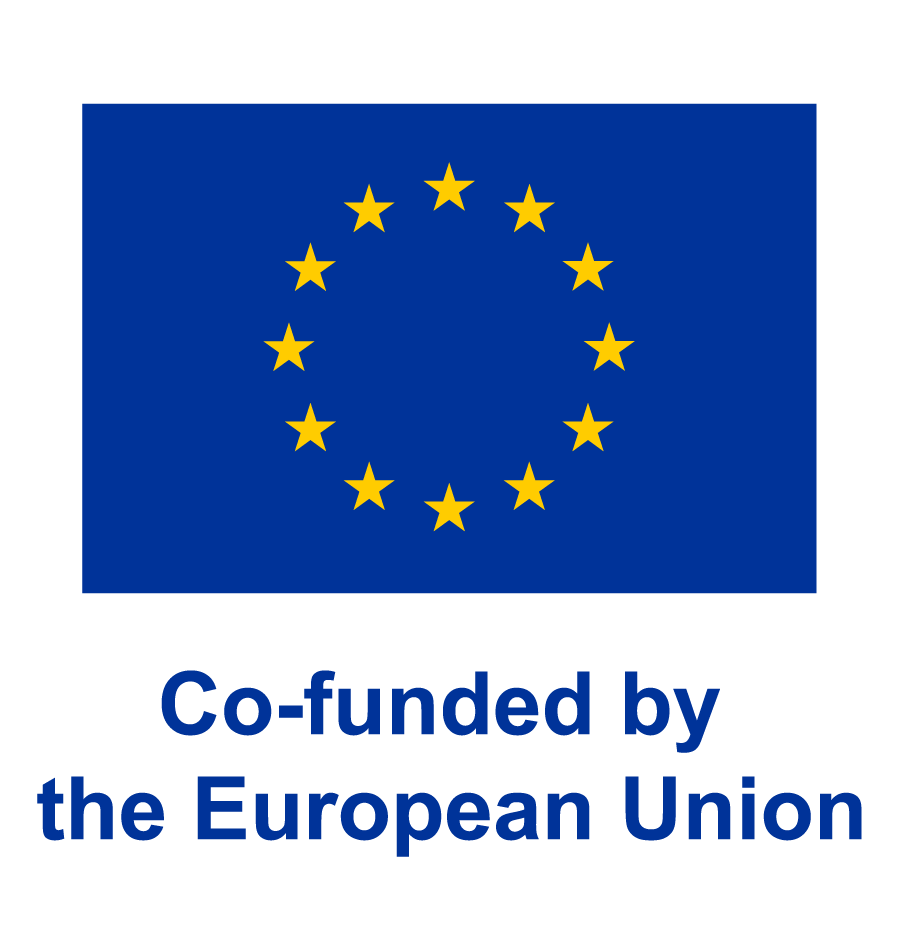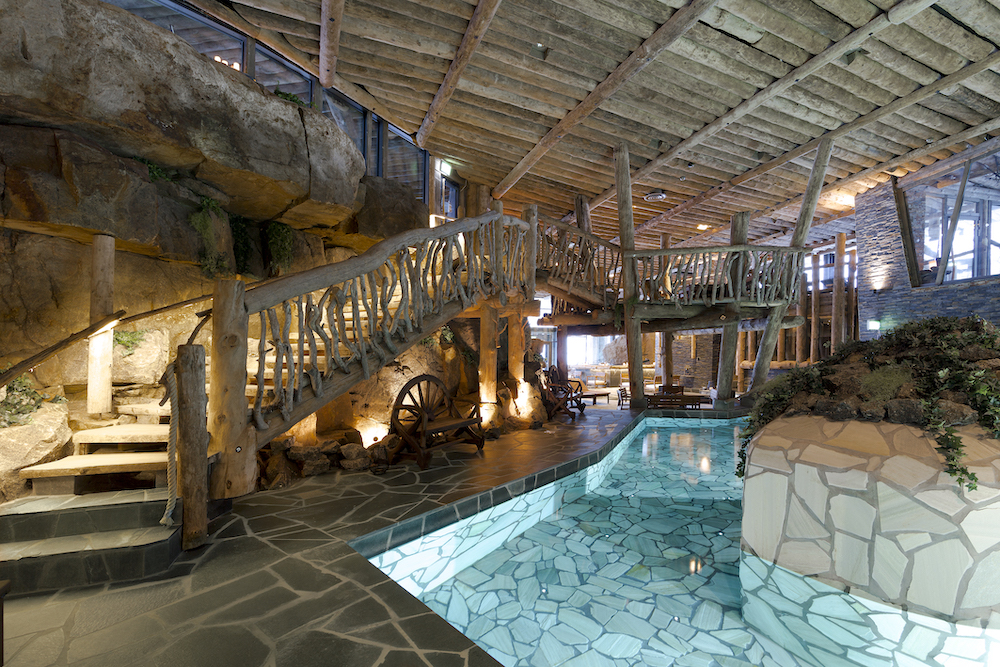Pa-La on the roof of Africa
On the first day we visited EWDNA (Ethiopian Women with Disabilities National Association) that works in cooperation with The Threshold Association (Kynnys ry). The organization has been working since 2002 and it has 11 employees and 10 offices in Ethiopia. In the city of Addis Abeba EWDNA reaches 650 women with disabilities.
On the second day the Kapua team divided into two groups. One group went to learn how to cook local food while the others visited the homes and work sites of local women who are supported by EWDNA.
It was interesting to watch the bustle of an African city: A lot of cars, a lot of people, a couple of donkeys and a goat in the middle. When approaching the first destination we turned into smaller and smaller alleys. The houses were humble: corrugated iron, crooked walls, suspicious electric adjustments. We speculated the safety and sanitation of the people and how they get along in general.
When entering the homes, the atmosphere was intense. Ten strangers were warmly welcomed with a smile.
The stories of these women were rough. The first one had started her life in an orphanage and later left alone, severely handicapped and with two children to take care of. The other lived far from her family, alone in her small apartment. The challenges were similar to the both women: the difficulty of moving, social isolation, thin bread. Both of them now engage themselves, with the support of EWDNA, in selling their handicrafts in a country where the state support for disabled is scarce.
The women told that the help of EWDNA has brought them stronger self-confidence, peer support, knowledge of their rights. Courage to talk to people and speak for themselves, ways of avoiding abuse. Empowerment is not rhetoric when it comes to these people!
The other group headed for cooking class of local food, Inijera bread with accompaniments. The teachers were blind, deaf and handicapped women. The way they minded and took care of each other was amazing. They had a challenging task of teaching ten foreigners cooking with very modest equipment.
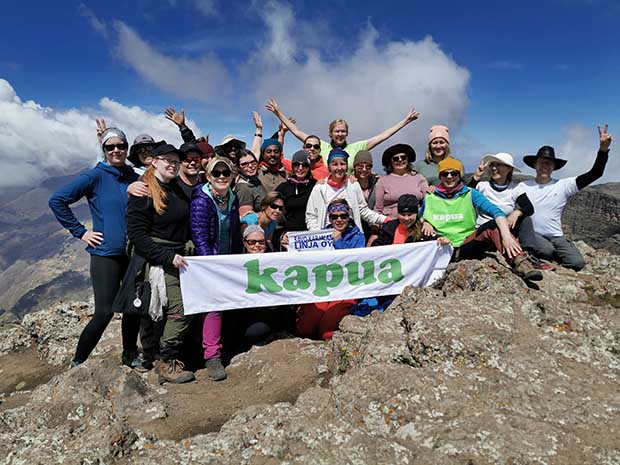
The happy Kapua team at the top of Ras Dashen. The team raised over 90 000 euros for charity during the year 2019.
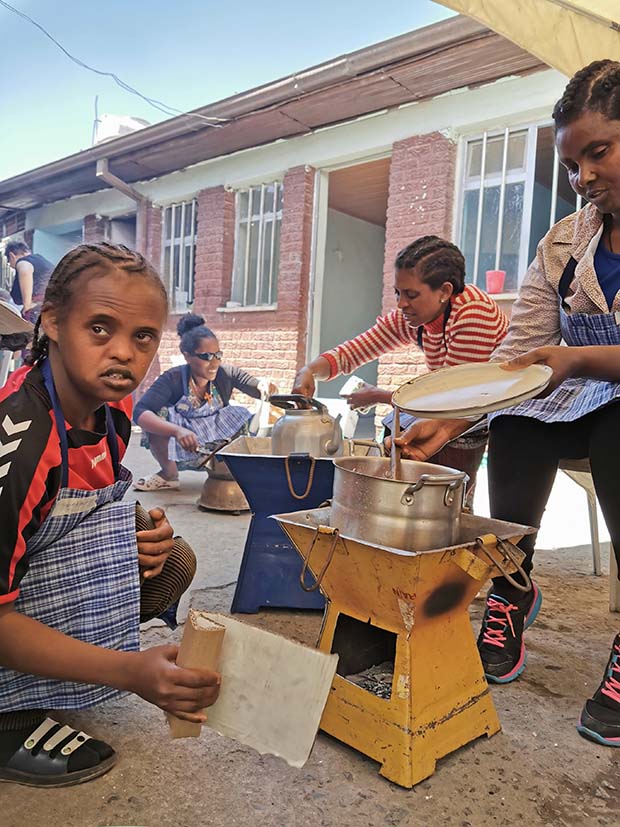
During the trip the team had privilege to learn with handicapped women how to make local food.
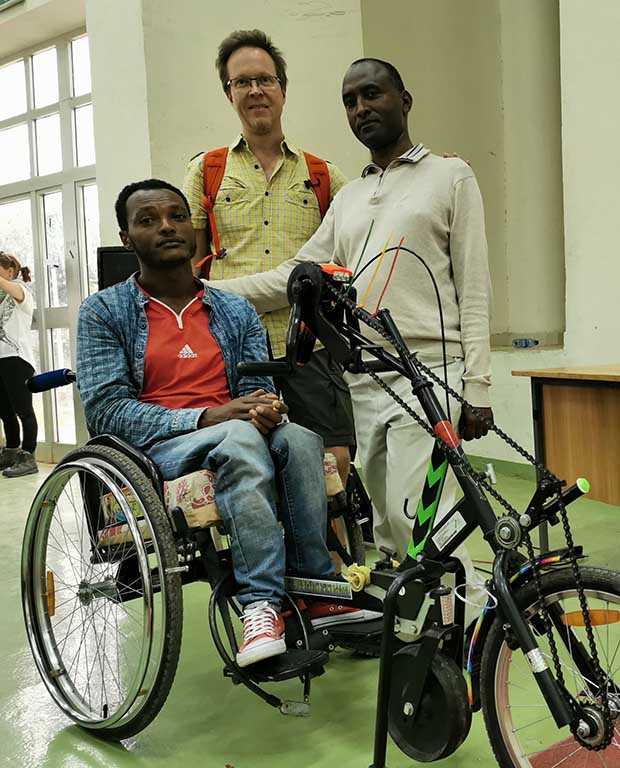
The handicapped people have a right to study at the university of Gondar. For us this might seem as self-evident but in Ethiopia it is quite a new development.
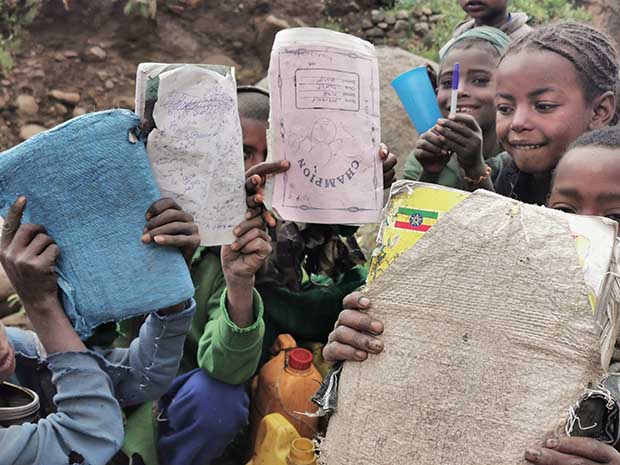
In the village of Ambiko the Kapua team visited local school. With the help of a small contribution by the team the teacher could get equipment for the students, such as new note books.
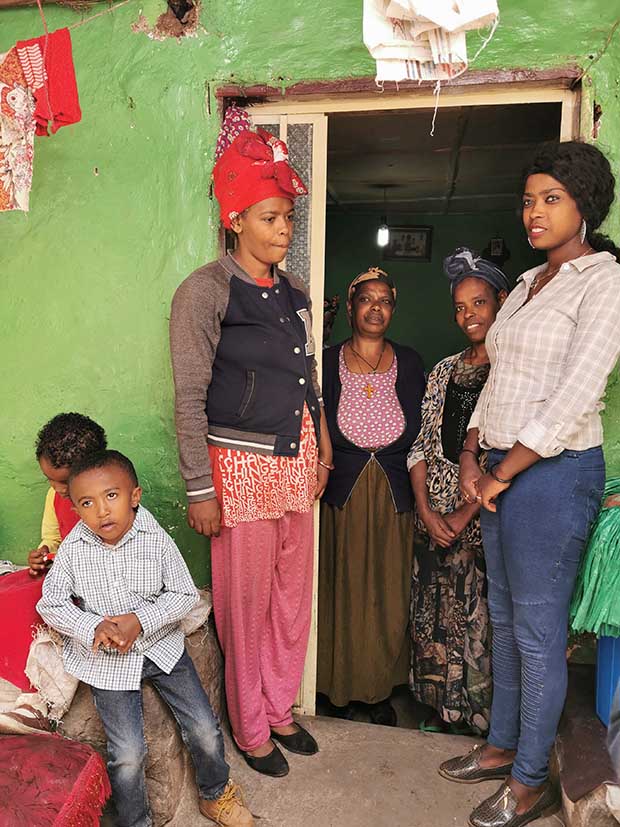
The visit at the home of depth women was a touching experience. With the help of EWDNA these women have gained new hope into their lives.
We also visited the Finnish embassy in Ethiopia. Arto Valjas, the official in charge of commerce and development, introduced the three sectors in which Finland supports Ethiopia: education; the sanitation, water supply and development of rural areas and the development of the country’s registration. He also reminded of the harsh cut in funds the Finnish government recently made.
On Friday we left Addis Abeba and flew to Gondar where we explored how inclusive education works in the university. The Threshold Association has worked over ten years with ECDD (Ethiopian Center for Disability and Development) in Ethiopian universities. The project at the Gondar university took place in 2016–2018.
“We work with the university for a couple of years to start the changes but after that the universities continue the work themselves,” says Veera Pensala from the Threshold Association emphasizing sustainable development. “The crucial part is to engage the management.”
In the university of Gondar accessibility has been considered among other things. There has been improvement although things are far from how they are back in Finland. Progress is that the disabled people can go to the university and study together with the non-handicapped. By being seen and doing the disabled people show that they can do anything – and this is new in Ethiopia.
The rest of the trip was devoted to mountain hike with the aim of concurring the highest mountain, Ras Dashen (4 550 m). In spite of ache, accidents and vague conditions everyone felt exceeding themselves. The entire Kapua team made it to the top!
Partanen & Lamusuo wants to thank all supporters and friends for your donation for the Ethiopian people. Together we can build a better world!
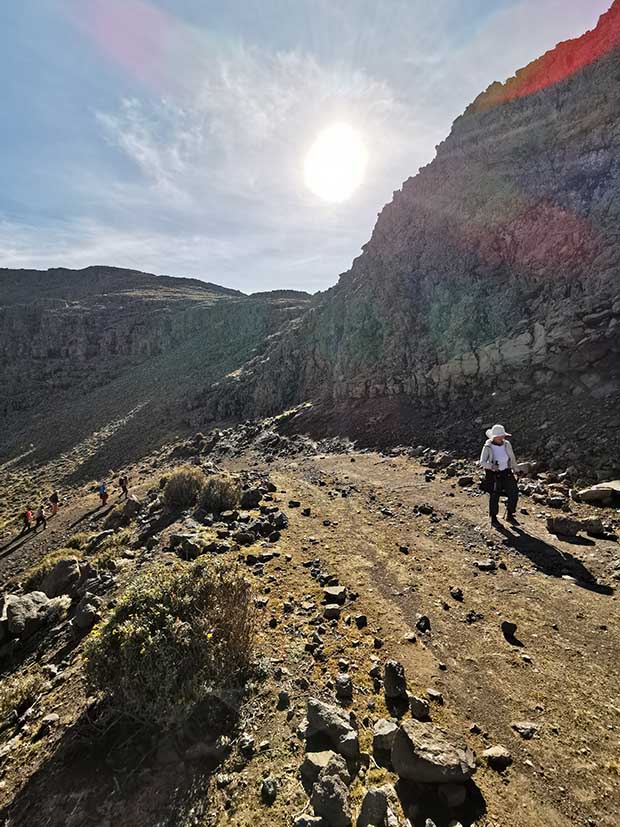
The hiking route in the Simien mountains was versatile and full of amazing sceneries.
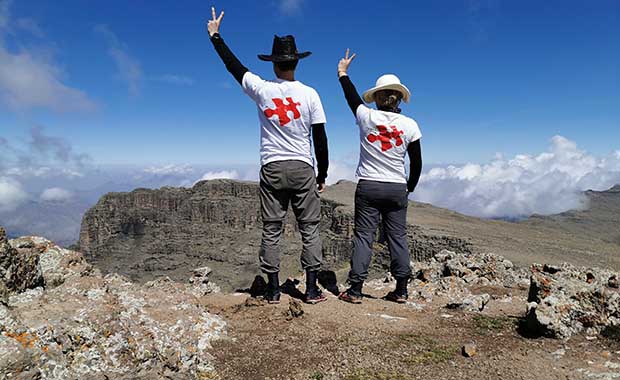
Jaana and Heikki at the top of Ras Dashen, the roof of Africa.
“We all have the possibility to help the world to become whole with our small input. Each with one’s own way and style. Is it so that outside your own comfort zone the true growth begins?” Jaana Partanen in the Kapua 2019 Ethiopia blog.






